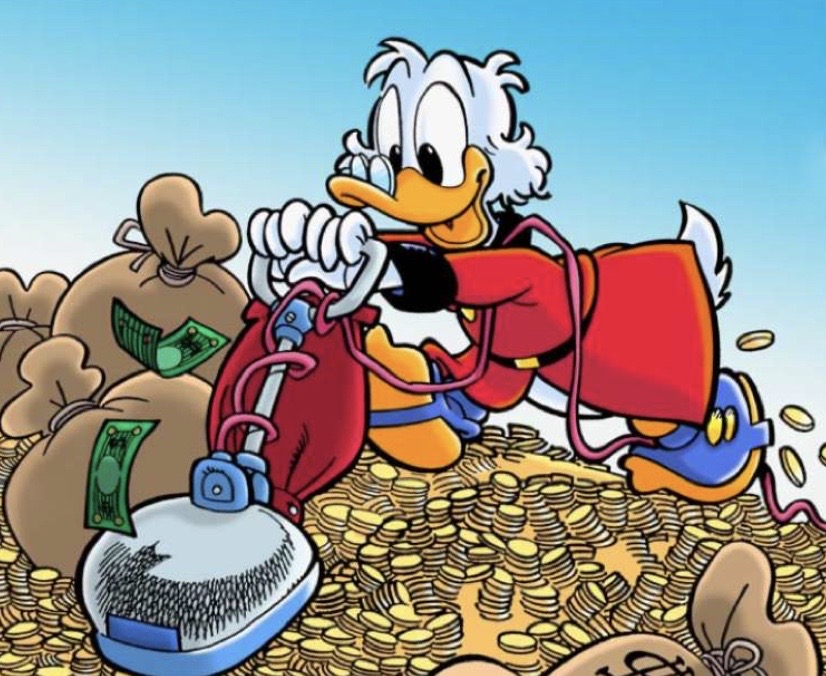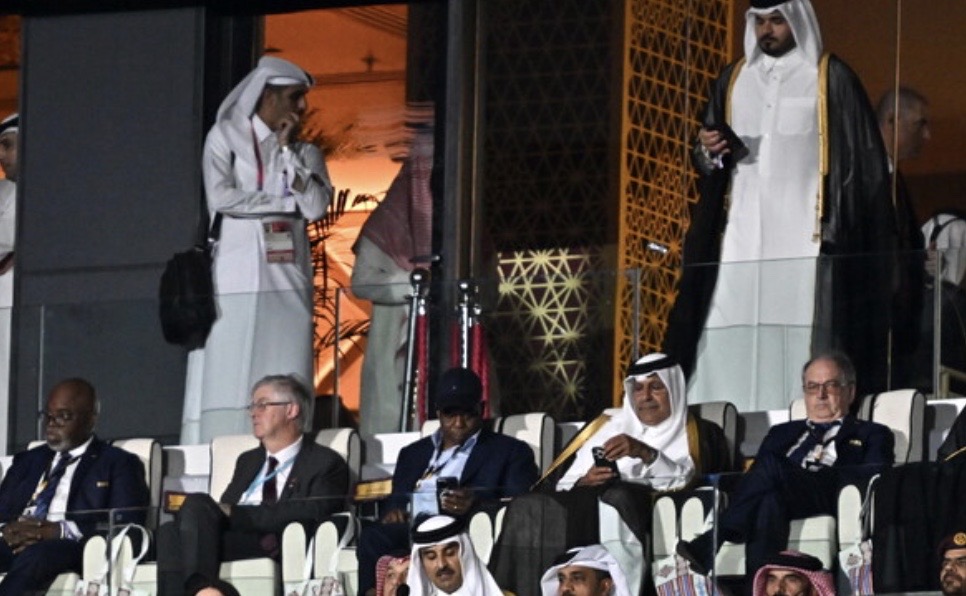(To Massimiliano D'Elia) Bags full of banknotes hidden inside the house, it seemed to witness the secret chest of Scrooge McDuck. This is the scene that occurred to the eyes of the Belgian judicial police once they raided the home of the vice president of the European Parliament Eva Kaili. Kaili's father tried to flee with a suitcase overflowing with money but was arrested on suspicion of a felony.

The operation brought out a system of corruption, very important gifts and money laundering from the Qatar and from Morocco which, according to the magistrates in Brussels, was to serve to influence the economic and political decisions of the European Parliament through the bribery of people who had a significant strategic and political position in the institution.
The president last night Robert Metsol suspended Kaili from the duties of vice president of the EU Parliament. Of the 16 searches ordered in Belgium, one concerned the offices of an assistant of Italian nationality, another of a Belgian socialist deputy also of Italian origins and president of the rights commission closely linked to Panzeri of which she was assistant in the European Parliament. In the next few hours, the judiciary will have to evaluate the position of the 6 people arrested in Belgium to decide whether to validate the detentions by transforming them into arrests. Something that has already happened in Brescia, where Panzeri's wife and daughter were placed under house arrest after being stopped with a European arrest warrant executed by the Carabinieri. The documentation, attached to the European arrest warrant, issued by the investigating judge Michel Claise describes the key points of the investigations which, if confirmed in trial, could lead to sentences of up to 5 years in prison for crimes committed in Belgium from 2021 January 8 to December 2022, XNUMX.
Qatar's global influence
Qatar's influence is no longer an enigma, it was known but no one wanted to curb the corruptive method of the emirs. The Security Services have repeatedly raised the alarm to European governments about foreign funds reaching Islamic communities. An important flow of money tending to favor the processes of Islamization of the communities that instead need integration. A sort of dangerous antechamber where extremist and terrorist tendencies can easily germinate.
The power is palpable and it shows from Al Jazeera to the World Cup, from hacking efforts to corruption scandals. The government has dramatically balanced its external links, symbolized by the gigantic Al-Udeid Air Base, used mostly by US forces and the Qatar-Turkey Joint Command.
In part, this extraordinary primacy is made possible by the riches of the territory poured on the small population of the country which has just over 300.000 inhabitants, about 1% of the population of Shanghai. The vast gas field North Dome enriches the population with a per capita income of about 500 thousand US dollars, about five times higher than the second richest state, Luxembourg.
The peculiarity of Qatar is also given by its leadership. Just as in Saudi Arabia, the extremist ideology of Wahhabism dominates in Qatar, imbuing the population with a sense of purpose and ambition quite disproportionate to its size. Its recent leadership, Emir Hamad (1995-2013) and now his son Tamim (2013), as well as their relatives and aides, profess an evanescent grandeur well symbolized by the name HAMAD.
A gigantic HAMAD (1km by 3km) was engraved on the sand of an island in 2010, then canceled two years later.
Qatar's reach is perhaps most evident in its reported support for jihadist groups in places as diverse as Iraq (Al-Qaeda), Syria (Ahrar al-Sham, Jabhat al-Nusra), Gaza (Hamas) and Libya. (Benghazi Defense Brigades). In addition, Qatar supports major Islamist networks around the world - including the Muslim Brotherhood in Egypt, the AKP in Turkey and Jamaat-e-Islami in Bangladesh.
In Doha, the government provides the Taliban with a spacious office. Islamist luminaries such as the spiritual leader of the Muslim Brotherhood Yusuf Al-Qaradawi and the head of Hamas Khaled Meshaal have been home to Doha for decades.
In the West, Qatar's power is more cautious and thrives unchallenged. For example, it funds mosques and other Islamic institutions, which express their gratitude by protesting outside Saudi Arabian embassies in London and Washington.
But Doha doesn't just rely on the Islamist diaspora in the West to advance its agenda,he also works to directly influence Western politicians and public opinion.
The huge Al Jazeera television network has grown into one of the largest and most well-known broadcasters in the world. Its English-language stations produce biting propaganda against Qatar's enemies, disguised in Western liberal rhetoric.
Doha is also trying to influence Western educational institutions. The regime-controlled Qatar Foundation provides tens of millions of dollars to schools, colleges and other educational institutions in Europe and North America. Indeed, Qatar is now the largest foreign donor to American universities. Its funds pay for Arabic teaching and lessons on Middle Eastern culture, and their ideological bias is sometimes blatantly evident, as in the lesson plan in American schools entitled. “Express your loyalty to Qatar”.
Qatar Papers
Qatar Papers was published in France years ago, a book that made a fundamental contribution to the debate on the power of the Qatari emirs. The authors, Christian Chesnot and Georges Malbrunot have viewed thousands of internal documents of the Qatar Charity, the independent foundation at first sight but financed and controlled by the Emir of Qatar which happens to be the main financier of mosques and Islamic centers in Europe, linked to the Muslim Brotherhood.
113 projects were funded throughout Europe in 2014, for a total of 71 million euros. The country where Qatar Charity spent the most? Italy, more than 22 million divided over 45 projects. Mosques and Islamic centers, especially in the north (Saronno. Piacenza, Brescia, Alessandria….), But also in the center and south. Indeed, Sicily stands out among the regions with its 11 projects, in the capitals as well as in small towns such as Comiso and Vittoria.
Very interesting is the project by Yassine Baradei and Davide Piccardo, well-known exponents of Lombard Islam, to build "a new great Islamic center in Milan, with a mosque and various educational centers, a project that needs support".
The financier is Egyptian-born Qaradawi, an octogenarian who has been with the 60 years in Qatar, where he built a theological-entrepreneurial empire that over the years has included a show on the Qatari-based broadcaster Al Jazeera, key roles in Islamic finance institutions and dozens of books translated into many languages.
Spiritual leader of the Muslim Brotherhood, he has repeatedly expressed highly problematic positions, from approving the death penalty for those who abandon Islam to praise Hitler, which led him to be banned in many Western countries (in France already in the years '90). Qaradawi has also repeatedly proclaimed that he is certain that the Muslims will conquer Rome and Europe, specifying, however, that this conquest will not happen with the sword but through proselytism and faith. Ideas like those of Qaradawi are regularly promoted by networks linked to the Muslim Brotherhood and amplified through massive Qatari funding. In many countries, laws are being considered that prohibit any foreign funding for political-diplomatic actions specifically adopted in relation to Qatar.
